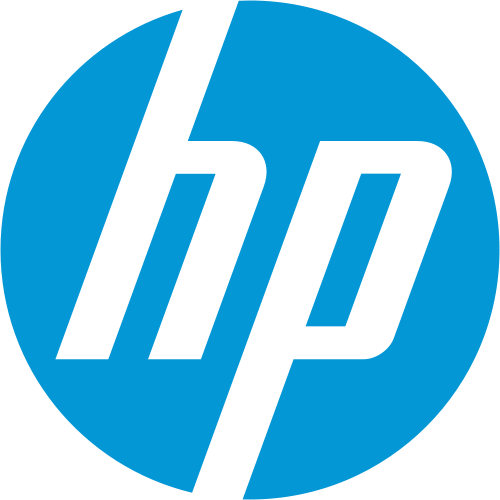Hewlett-Packard Co. (NYSE: HPQ) is still in the beginnings of its long-term turnaround under CEO Meg Whitman. Earnings were not so bad, but there is this continued erosion in the core PC and peripherals market and that is acting as a drag. The same is true for Dell Inc. (NASDAQ: DELL), but the difference is that Michael Dell is trying to complete his acquisition of that PC giant. This would be very complicated and almost certainly would garner intense regulatory hurdles and scrutiny, but we think it is becoming a fair question to ask whether Hewlett-Packard should try to merge with arch-rival Dell. Source: courtesy of Hewlett-Packard
Source: courtesy of Hewlett-Packard
The first thing that you have to consider is that the Department of Justice and many international and foreign regulators would try to fight or outright block this from the start. What is changing now compared to a decade ago is that PC sales trends are starting to look like cigarette sales trends in the 1990s, decline followed by more decline.
The real issue is twofold. Apple Inc. (NASDAQ: AAPL) had been competing for PC sales, but now its iPad tablets have put a major dent into those sales. Ask yourself what Dell and Hewlett-Packard are garnering in the tablet market sales. Ask the same thing about smartphones. Dell and HP are basically at zero on that front.
What happens if two industry giants come together to say that the only way they can survive is to merge? It is a serious issue happening around PC sales, and competitors like Gateway/Acer, Lenovo, Asus and others are adding incresing competition as this becomes a commoditized cycle. HP critics might have to actually say that the Carly Fiorina acquisition of Compaq was not as bad as they always maintained. And you also cannot forget that International Business Machines Corp. (NYSE: IBM) was so tired of competing in PCs that it actually jettisoned its PC business to Lenovo in China.
Another huge hurdle is the environments, which ultimately will consolidate thousands of jobs. The reality is that Dell and HP have been rivals for so long that it is hard to imagine that the cultures could coexist. Management teams might poison the well. That being said, imagine all of the global supply chains that could be consolidated if the two U.S.-based PC giants were suddenly just one. They might even be able to maintain the two different brands for some time.
Lastly, this might leave Microsoft Corp. (NASDAQ: MSFT) and Intel Corp. (NASDAQ: INTC) in a winner-take-all or in a serious lurch. Microsoft is currently a part of the Dell deal in financing, and there has been some speculation that ultimately Microsoft may have a full interest in buying Dell. This is problematic as well, but it has been discussed by financial media.
We are not trying to suggest that Meg Whitman would really try to do this deal. We are not even suggesting that Michael Dell would eat the crow here and admit for a second that it would be the right merger at all. In fact, we think the regulatory bodies would fight the merger so hard that the companies likely would never even get close to a closing date. The problem is that HP and Dell are both facing pressures that may be permanent and that were not present in the 1990s and 2000s.
There is a reason these two companies have valuations that are so paltry. Dell is going to be acquired for about 12 times next year’s earnings estimates while HP’s 13% stock drop after earnings has it valued at a mere six times next year’s expected earnings.
No one believes in these companies having a great future. Maybe something radical like this will make more sense if we are still talking about the same erosions and pressures in 2016 or beyond.
Essential Tips for Investing: Sponsored
A financial advisor can help you understand the advantages and disadvantages of investment properties. Finding a qualified financial advisor doesn’t have to be hard. SmartAsset’s free tool matches you with up to three financial advisors who serve your area, and you can interview your advisor matches at no cost to decide which one is right for you. If you’re ready to find an advisor who can help you achieve your financial goals, get started now.
Investing in real estate can diversify your portfolio. But expanding your horizons may add additional costs. If you’re an investor looking to minimize expenses, consider checking out online brokerages. They often offer low investment fees, helping you maximize your profit.
Thank you for reading! Have some feedback for us?
Contact the 24/7 Wall St. editorial team.



